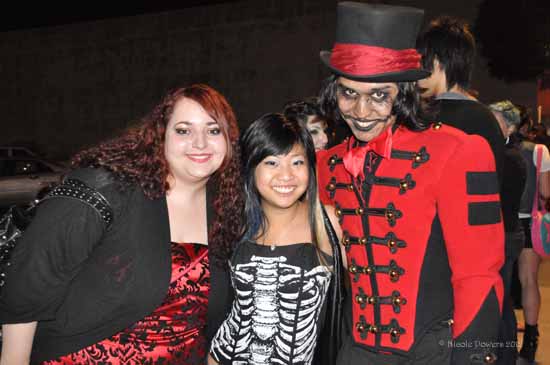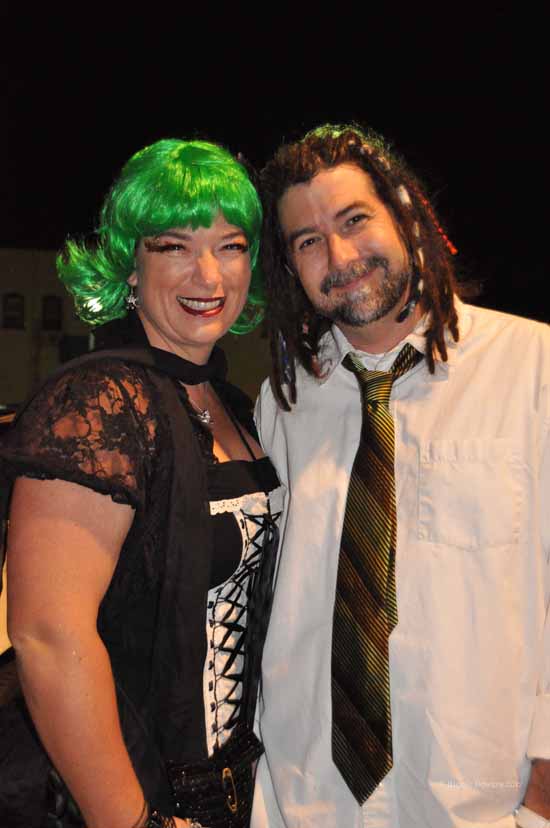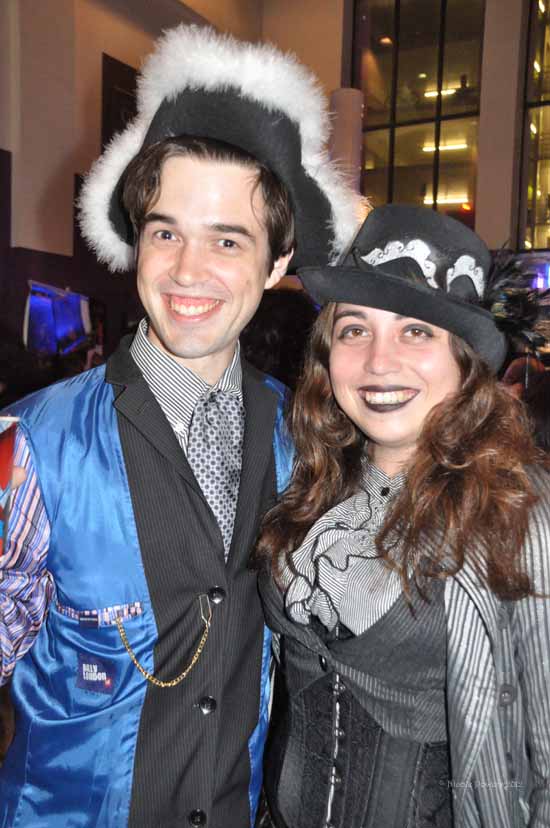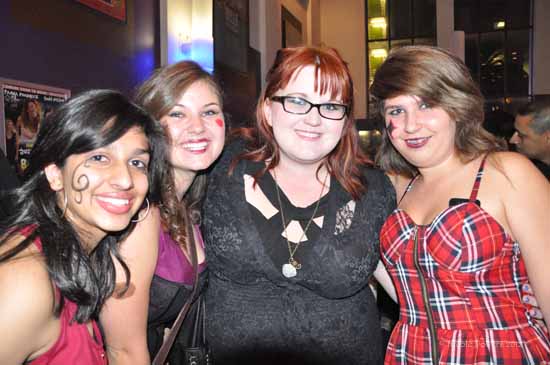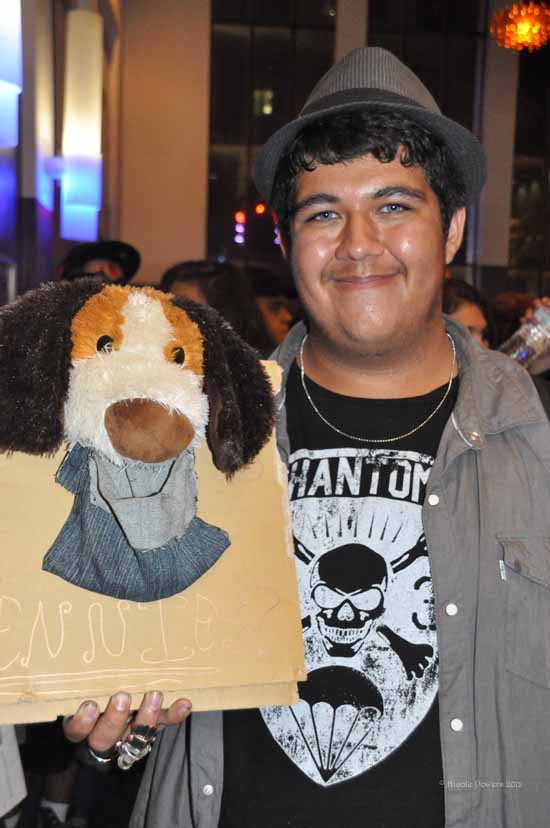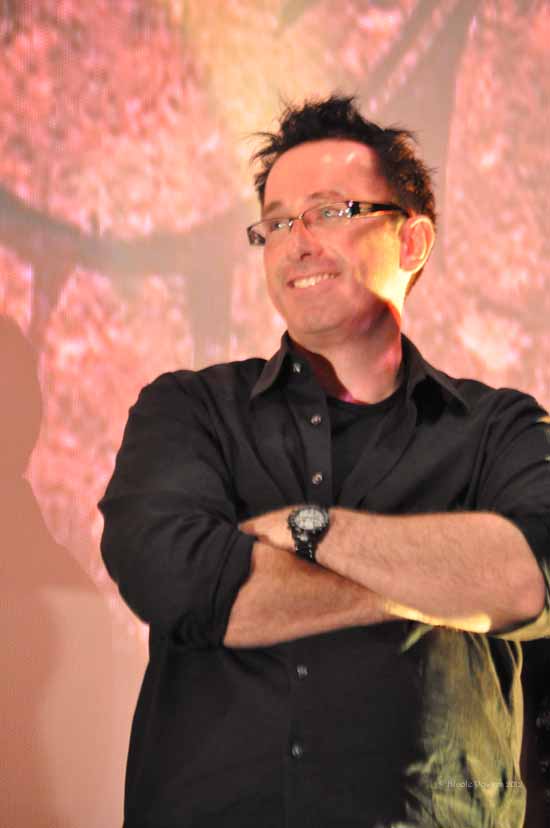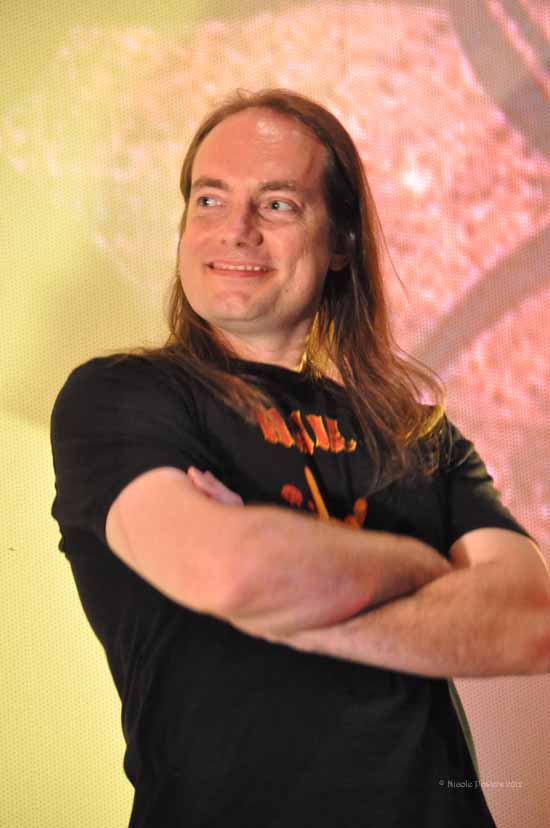by Chris Goodman
“You’re never alone with the Dirty 3,” reads the etching in the run out groove on side B of their 1996 release Horse Stories. They couldn’t be more right. Falling in love, falling out of love, whatever it was… If you’re a fan of the Dirty Three you can pinpoint the exact moment you heard their records. They spoke with brilliance and clarity beyond you and let you know that wherever you were, whatever was happening, you weren’t alone everything was going to be alright.
Their February release, Toward the Low Sun from Drag City, digs in the second you drop the needle. This doesn’t start like your usual Dirty Three album building on a slowly picked out guitar chord or dancing around Warren Ellis’s pizzicato melody. This album blasts off with “Furnace Skies’ ” overdriven violin and manic drumming, only to take it back down and ground you on the second track of the album “Sometimes I forget you’ve gone,” which features Jim White’s intoxicating drum rolls, Ellis’s sparse piano parts and Mick Turner’s unwinding guitar. When performed live Ellis has related, in his quips between songs, that this is about checking the outbox of your email only to find that all the letters you’ve sent someone telling them how you feel were never received…As the recipient has died. This is their first album in 7 years. And it’s fucking amazing.
In addition to the Dirty Three, Warren Ellis stays busy with Nick Cave and the Bad Seeds, their side project Grinderman and a slew of soundtracks to movies you’ve seen but you might not know he worked on. The Assasination of Jesse James by the Coward Robert Ford, The Proposition, The Road and recently the John Hillcoat film Lawless, which was adapted from the novel The Wettest Country in the World from Matt Bondurant. Ellis even contributed to the the soundtrack for West of Memphis chronicling the trial, imprisonment, DNA testing and eventually release in 2011 of three boys from West Memphis, Arkansas wrongly accused of murder and imprisoned for 18 years.
I caught up with Ellis in Montreal on the first night of their second 2012 tour to get his take on creativity, how music and touring has changed in the last 20 years and how working on soundtracks taught him to challenge himself…
Chris Goodman: This is the first night of the tour? Did you guys meet up to rehearse the material beforehand?
Warren Ellis: Well we’ve been playing concerts off and on all year. But we met up in New York before the tour. We just played two weeks ago in England as well. This is all apart of a world tour to celebrate the release of our new record.
CG: You’ve been a band for 20 years. Is touring easier or harder these days?
WE: In a practical sense some things have gotten a lot easier. You have GPS, which we didn’t have in the ‘90s. You used to get a bunch of show dates and then try to find a map or something. It was a much different world then. There was no internet. And there were pagers. You tried to find a hotel with a fax, ya know. Things have really changed.
For me the big difference now is that I’m 15 years older than I was then. But touring is a big part of my life still and technology has made certain aspects of it a lot easier.
CG: I remember when I bought Horse Stories. Headphones on, sitting the floor checking the art out I realized there was an etching in the runout. “You’re never alone with the Dirty 3.” That spoke to me so much. Do you think with so much music being primarily online or on mobile devices that it takes away from the experience? That is a lot less tangible now?
WE: To be honest, everyone has an opinion about that and everybody’s kind of right. It depends when you grew up. I come from a generation where vinyl was a very important thing. We saw them try to get rid of that but it’s hung around and vinyl’s on it’s way back up.
There’s more things people spend their money on now. Back then there were only a handful. It’s just a different world. To me it seems the live shows are where things are really great these days because everything is much more connected. Some people have iPods and they listen to music on that, I mean I use one, but it’s seems like an incredible amount of information rendered into something that makes it feel kind of invalid or something. There is something very different about having 30,000 songs on an iPod and plugging it in as opposed to having a record in your hands and putting it on. The record is kind of contained. But basically you’re just listening to the stuff so I really don’t know if I have an answer about that.
I still love the format of records. I love making and listening to records. I like that vinyl is still around and available because it’s what I relate to. I really engage it in a different way. But for kids growing up with all this new stuff they relate to it differently. Sonically I still love the sound of vinyl but if I want to hear something I’ll listen to it on whatever.
CG: It’s too convenient to not have an iPod I guess?
WE: It is. It really is if you wanna hear “LA Woman” when you’re walking through an airport.
CG: How about technology and the recording industry?
WE: Everybody was down on ProTools a few years ago. And now everyone thinks it’s great. What you lose with the tape you gain with the time that you can save recording digitally. All things have their good and their bad.
CG: So Toward the Low Sun was recorded on ProTools?
WE: Yeah. Cinder we recorded on tape but this time it was digital.
CG: Did you guys have the material ready before you went in? Or do you just book the studio time and figure it out? I’ve read you don’t rehearse much…
WE: We’ve always been like that. We have ideas but we arrange them in the moment. If we flesh things out too much we lose the dynamic that happens when we’re working it out as we go along. That’s been one of the interesting things with the Dirty Three, to try to document that aspect. I mean we’ve tried to make this record a few times and it never worked because we were trying to flesh it out too much. Then we decided we had to go in with really skeletal ideas and just take some risks like we used to do.
CG: Toward the Low Sun really has a lot of breathing room. A lot of space to it. “Furnace Skies” really hits hard in, but it’s followed by “Sometimes I Forget You’ve Gone” which is very sparse and light.
WE: Space has always been important. You can easily choke things. The first two tracks were actually recorded in that order and signaled our way into the record, which had been elusive for about 7 years.
CG: Any recording after the tour?
WE: We’ll do the tour and hopefully we’ll get another one underway quicker than this one took. It’s the way it goes though. For the last 15 years we’ve all been involved in other projects. We’ve got families now. We take it when we can and try to keep it moving.
CG: Would you say music is something you create or something that exists out there and is just channeled through you?
WE: If I started to think about that too much it would get pretentious. I know when I play live that there is something else going on. I still don’t know what it is and I don’t want to know what it is because the day that I understand it will be the day that it will stop. Whatever that is I don’t know. I don’t know if it’s some communication with something else out there but it is very addictive and making music is like that too. Anything creative is like that. It opens up something in you, give you access to something you can’t get anywhere else in your life. I know that it doesn’t just fall from the sky. I know that from soundtrack work because not much of that falls into your lap. You have to go out and look for stuff. Music is about going and searching and then making the right changes…It’s not just all given from God or something.
CG: When you do the soundtrack work do you hear “We need happy music now,” or “We need pensive music”?
WE: Nick and I kind of make what we want but at a certain point you have producers or directors saying, “I don’t really get that.” Then you try to work out a way in there to keep yourself happy but sometimes their suggestions are really correct. When we were doing West of Memphis there were a couple of cues there that Nick and I really liked but Peter Jackson really wanted something else. We found something else and when I watched the film he was right. You hope the people working on a film make suggestions for the right reasons but sometimes you can’t see them until it’s done.
I initially found the thought of making music for something else very daunting sort of. Like it would cut my freedom off. But then I realized it could be liberating to be told something wasn’t what they wanted and do try something else. I realized it was about creation.
I can really draw a clear line as to when I started feeling and listening that and how things changed for me and made me look deeper. What first appeared as daunting and counter-creative was actually all in the name of creation. Sometimes it’s good to have a framework. Sometimes it’s good to have constraints put on you to bring out creativity.
CG: Creatively, do you think being satisfied is counterproductive, maybe? That you shouldn’t feel like things have ended and that it was “good enough?”
WE: There’s a point you reach where you feel that something has really happened with the music. You feel enlightened by it… You have to feel that to truly let it go. When you don’t feel it, that’s when you stop engaging and then you become kind of dissatisfied and you start looking toward the next thing and you think, “How can I do something really good” again. With me, there is always a moment when I have to feel, listening back, that I really got it or I won’t settle. It has to be really great. And it is a small window when that happens, when I decide to let it go and I don’t feel that sense of dissatisfaction. I’m always thinking that the next thing I do will be the one that’s really great though… But you have to take risks.
I don’t believe in the starving artist stuff. The struggling artist. Or that when you have kids that’s the end of the deal and the creativity is gone. It’s crap. A lot of that stuff is just romantic and in my experience it has no bearing.
CG: I guess if you talk about what you do too much it can get pretentious.
WE: It can get precious. You can get self-indulgent. And I think that might be something that’s good when you’re young. I’ve been doing this for 20 years now. When I was young I wouldn’t listen to anybody, fuck ‘em. But about 10 years ago when I did the Proposition soundtrack I realized to move in a different world I had to learn a different tolerance and to open myself to different things. I couldn’t have done that when I was younger. It’s not something that you can see as it happens though. You have to look back at your life to understand.
CG: So your outlook on creativity really changed when you started working on the Proposition soundtrack?
WE: Things changed when I had to work for something else entirely but still find my place in it and at the same time feel like what I had done was something of worth.
I still had the esteem for it like I did with my other records, but I was aware that it was being pushed from other directions and not just internally from the group. The great thing about a band is you just satisfy yourselves and that’s it. But sometimes it’s hard to move beyond that and you need things thrown at you to grow.
Doing the soundtrack for The Assasination of Jesse James by the Coward Robert Ford was one of the greatest learning experiences of my creative life. No question about it.
CG: With movies it’s bigger than you. Bigger than a group. Other people are depending on you for it. Your work reflects their big picture, their outcome.
WE: Exactly. You’re working for a film. You’re serving the film. And it takes on its own life once it’s out there. Like a record, things change when you put it out there and it’s out of your hands. But that comes back to letting things go.
CG: You worked with John Hillcoat on The Road and now Lawless…
WE: Well Nick had written the script and the idea always was that we’d do the music for it.
CG: What are your influences these days? What turns you on?
WE: I still find the stuff I liked as a younger man relevant. John Coltrane, Miles Davis, Neil Young, AC/DC, Beethoven, Stravinsky. It feels great to put on a John Lee Hooker record and think, “Man, I was right 20 years ago with this stuff.” It still moves me. Van Morrison, Nina Simone. Or it’s inspiring when I go to a gallery but you can’t really say when things inspire you. I just like seeing and listening to stuff that’s being created.
CG: Van Morrison…Astral Weeks might be the best album of all time.
WE: I think Veedon Fleece is my favorite one of his.
CG: How do your kids deal with you and your wife[Delphine Ciampi] both being musicians? Do they think you’re cool?
WE: They’re my kids and I’m their dad. They’re not meant to think I’m cool. What I do outside of being a dad is just what I do to them I guess. As they’ve gotten a bit older I think they find what I do a little more interesting. (a long pause)…I think they think I’m a dick. Like anyone thinks their dad is a dick.
CG: How did Eastwood guitars end up releasing the Warren Ellis signature tenor guitar? Which, ahem, I bought in the cherry finish…
WE: Yeah, it’s great! They came to me and asked and I gave them the specifications and away it went.
CG: Any new Grinderman material coming out soon?
WE: I can’t say.
CG: Any solo work from you?
WE: I find doing stuff on my own not particularly enjoyable. I like making music with people and I like what they bring out in me. I don’t find it nearly as thrilling as playing with others.
Toward the Low Sun is out now via Drag City. Visit their website for more info and tour dates.
Related Posts
SG Interview: Kevin Fennell and Mitch Mitchell of Guided By Voices











